Support strong Canadian climate journalism for 2025
The federal government has officially given the stamp of approval to two major pipeline projects in Canada, Kinder Morgan's Trans Mountain expansion and Enbridge's Line 3 pipeline. It has rejected the highly-controversial Enbridge Northern Gateway pipeline.
The two new pipelines will add roughly one million barrels per day in new oil transport capacity. Trudeau made the announcement on Tuesday in Ottawa, prior to a meeting with Alberta Premier Rachel Notley, who has been urging the federal government to help its oil companies get access to new markets by approving pipelines.
The decisions by his cabinet open the door to Enbridge Inc.'s Line 3 replacement project, described as the biggest in the Calgary-based company's history, and Kinder Morgan's Trans Mountain expansion (TMX), described by a Trudeau-appointed panel as being among the most "controversial in the country, perhaps in the world, today."
The new approvals are likely to provide some political cover for Notley and Trudeau who have been blamed by Alberta opposition politicians for the slumping global oil prices that have hammered the province's economy, triggering tens of thousands of job losses. At the same time, the approval of a new pipeline is likely to draw detractors from some members of the environmental community who have been urging rejection of all new pipelines.
Each project would result in annual carbon pollution that would be equivalent to about five or six million cars on the roads, Environment and Climate Change Canada estimated.
"Canadians know that strong action on the environment is good on the economy," Trudeau said during a press conference, flanked by five cabinet ministers. "We said that major pipelines could only get built if we had a price on carbon and strong environmental protection in place. We said Indigenous people must be respected and part of the process."
It was using this framework of understanding, he explained, that his cabinet decided to approve the projects although the prime minister also said that, "there isn’t a country in the world that would find billions of barrels of oil and leave it in the ground while there is a market for it."
But both projects will also likely face threats from legal challenges and economic factors that could still stand in the way of final investment decisions.
Many megatonnes of GHGs from oilsands
Line 3 would allow western oil producers to ship up to 760,000 barrels of oil per day from Alberta to the U.S. midwest, doubling the capacity of the existing line that is now facing pressure restrictions for safety reasons. Canada’s National Energy Board recommended in April that the government approve the Line 3 replacement project with 89 conditions.
The Trans Mountain expansion (TMX) would triple the capacity of an existing pipeline network that links the Edmonton and Vancouver regions, shipping roughly 890,000 barrels of crude oil and petroleum per day. The NEB recommended that project for approval in May, along with 157 environmental, financial and technical conditions.
"If I thought this project was unsafe for the B.C. coast, I would reject it," he said of the TMX approval. "This is a decision based on rigorous debate, on science and on evidence. We will not be swayed by political arguments."
His comments contrasted with recent concerns raised by young scientists about the poor quality of federal reviews as well as with the conclusions of the panel his government appointed to review the project this summer. The panel said that the NEB had failed to prove that the project was in the public interest, but Trudeau disagreed.
"We made this decision today because we are convinced it is in the best interests of Canadians," Trudeau said.
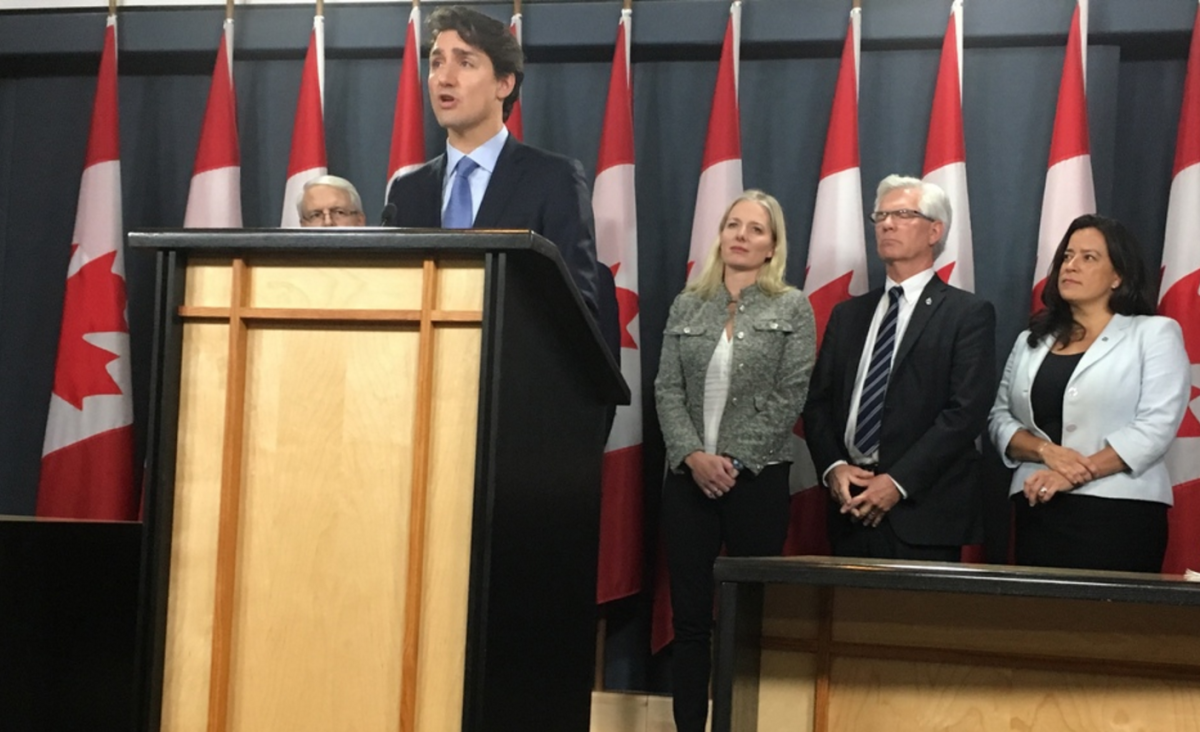
Pipelines to produce major emissions
After meeting with Trudeau in Ottawa, Alberta Premier Notley said the new pipeline approvals open the door to her accepting the federal government's plan for a higher price on carbon than Alberta currently has planned.
"I want to thank Prime Minister Trudeau and his government for approving these energy infrastructure projects, which are critically important to the economic future of the people of Alberta," said Notley in a press statement after the announcement. “We are getting a chance to break our landlock. We're getting a chance to sell to China and other new markets at better prices.
"We're getting a chance to reduce our dependence on one market, and therefore to be more economically independent. And we're getting a chance to pick ourselves up and move forward again. Of equal importance, we are building the economy within a strong new national environmental policy."
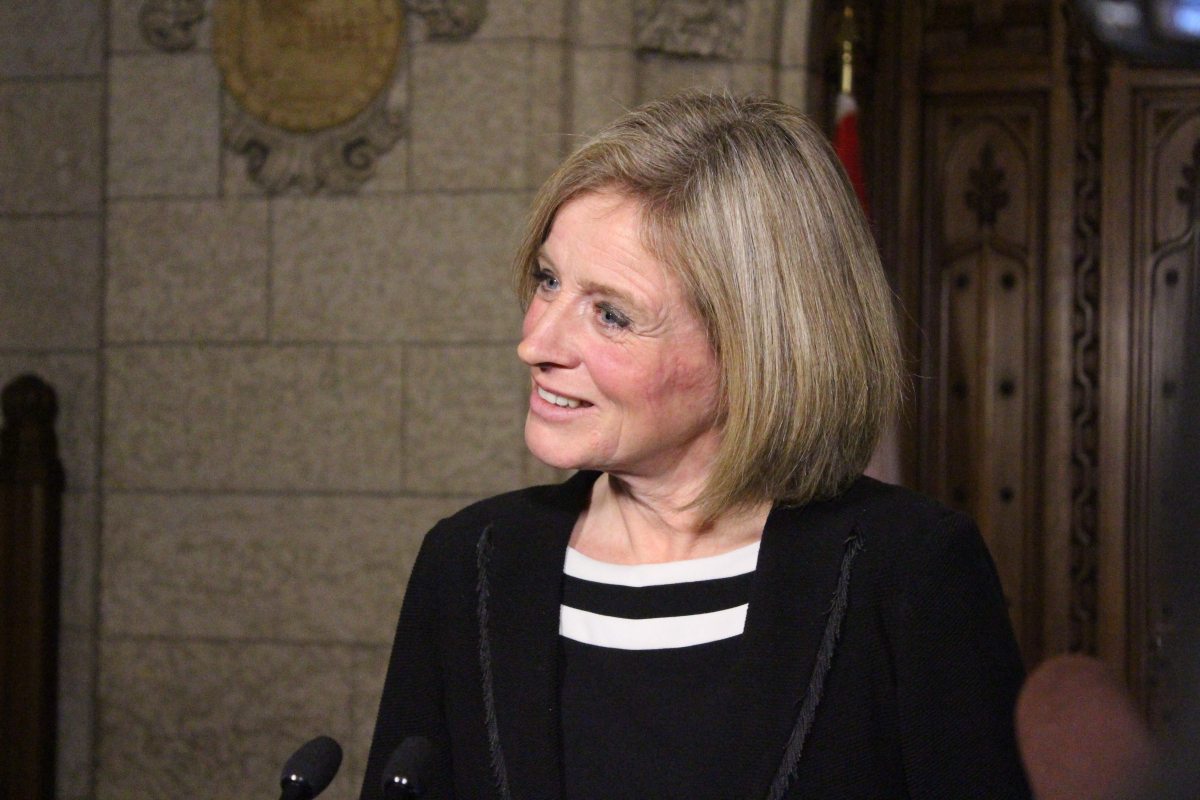
Trudeau said the project can proceed without compromising Canada's climate change goals, but he has not yet produced a complete plan to explain how the country can do this.
Meantime, Kinder Morgan has said it is committed to working with local communities and First Nations to improve the project.
“This Project has evolved substantially as a result of the scrutiny it has undergone and the input received from communities, Indigenous and Metis groups and individuals. No voice has gone unheard, and we thank everyone who has helped make this project better,” said Kinder Morgan Canada president Ian Anderson.
Trudeau has scheduled a meeting with provincial and territorial premiers on Dec. 9 to discuss further details of a national climate change plan. His government has already introduced a series of policies, including plans to make polluters pay for carbon emissions and proposals to regulate fuels used for transportation and buildings.
B.C. Premier Christy Clark spoke with Trudeau today. Clark has not announced whether her government will support the Kinder Morgan expansion and a statement from the prime minister's office expressed that, "The leaders agreed on the importance to take a balanced approach to the development of natural resources to help ensure the environment is protected, while creating jobs, including jobs in British Columbia."
Northern Gateway rejected, tanker ban announced
In the meantime some economists have cast doubts about estimates from industry that suggest new pipelines would help promote growth in the oilsands sector, which is struggling to compete because it has higher production costs and a larger environmental footprint than more conventional forms of oil.
Trudeau, who has long been opposed to Enbridge's Northern Gateway pipeline, rejected that project, which would have gone through a pristine ecosystem on the west coast of B.C., known as the Great Bear Rainforest. This project had been thrown into limbo following a Federal Court of Appeal decision last June which found that the permits issued by the former Harper government were invalid because it had failed to adequately consult with First Nations.
He also delivered on a federal tanker ban for crude oil tankers on B.C.'s north coast that will be translated into formal legislation in the coming months.
"The Great Bear Rainforest is no place for a pipeline and the Douglas Channel is no place for tankers," he told reporters.
But the approval of Line 3 is good news for Calgary-based Enbridge, which has been criticized in recent years following major oil spill disasters in 2007 on Line 3 in Glenavon, Sask. and on Line 6B in 2010 in Marshall, Michigan. Regulators said Enbridge failed to stop these disasters from happening because it was having trouble monitoring and repairing pipeline cracks that formed from corrosion. The company has said it has made improvements since these spills.

"The learnings from our experience have made us a better company and the way we think about safety has changed," said Enbridge president and chief executive Al Monaco in a statement, following a US$177 million settlement reached in July with the U.S. government for the Marshal spill and another in Romeoville, Illinois in 2010. "Over the past six years, we've intensified our focus on the safety and integrity of our systems enterprise-wide and we've invested significantly in our people, processes, equipment and technology. Across Enbridge, our team is galvanized by our number one priority of safety and reliability of our systems and the protection of the public and the environment."
The energy company must still gain U.S. approval from Minnesota if it wants to proceed with the Line 3 project to modernize, widen and increase the capacity of the line that runs between Hardisty, Alta. and Superior, Wisconsin. It would also allow the company to avoid the pressure restrictions on its existing line that have been imposed for safety reasons.

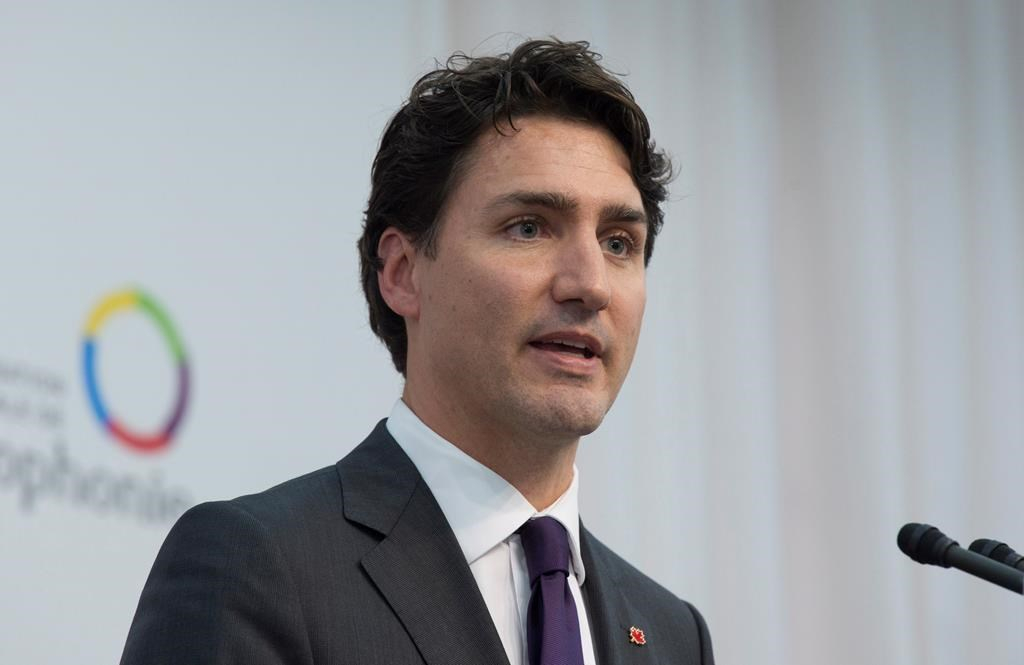


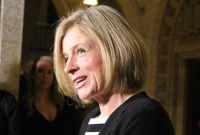


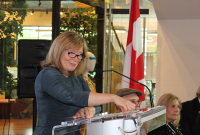
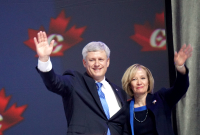
Comments
Very hard to believe this:
"The learnings from our experience have made us a better company and the way we think about safety has changed," said Enbridge president and chief executive Al Monaco..."
after you have seen this:
https://www.youtube.com/shared?ci=oUeMZXGwC5o
This video is astounding, thank you for the link. The extraction industry all share the same "world class" cleanup methods, provided by the same cleanup companies. I hope folks near the Husky Saskatchewan spill see this and go digging in the river.
It is astounding, you are welcome. Immense credit to John Bolenbaugh for working tirelessly, under intimidating and stressful conditions, to bring such atrocious and shameful corporate actions to our attention.
Not only was the cover-up of the spilled bitumen horrifying, but equally, if not more disturbing, was the initial (then ongoing) impacts to residents from the exposure to diluents, the highly volatile compounds, such as condensate, used to thin bitumen for transport. Diluted bitumen spills are a double edged sword.
Much like the clusters of disease around the tarsands that brave doctors brought to the public's attention, only to be so persecuted by AHC, multinationals, and government, that they had to stop practicing medicine. Real democracies don't use the full power of government to vilify whistleblowers and use the courts to grind them into bankrupt poverty that utterly destroys their lives. Yet Canada does this with glee, on behalf of industry, the cattle industry, salmon farms, and mega multinationals like Monsanto. Even 100+ healthy endangered Shropshire sheep and their owner (Montana Jones) were not spared. When the PMO appoints the Senators, has involved itself in appointing judges, and bribes the cbc, it's a rigged game. We must therefore make up our own rules. Think outside of the box.
The EPA ignoring oil 3' deep covered with acres of floating coco fibre planted with grass in your link should result in investigating the EPA, charges, and trials. Exactly what should be happening at the NEB over all the leaks and obvious collusion. It would also lead directly to ministerial and PMO offices, so many heads should be rolling. Keep hammering them, National Observer!
Treetop,
We know all too well about how Alberta deals with health complaints regarding oil and gas as well as being attacked and bled out by the legal sharks retained by industry.
In response to our health concerns related to 6 fracced crude oil, condensate and gas wells, two sour, by our home, the Alberta Energy Regulator, wrote the Didsbury Recurring Health Complaints Technical Synthesis about us, but without our involvement or consent. There are similar (copy and paste similar, in some aspects) technical reports published by the AER for the Lochend and Fort McKay regions as well. Upon completion, the AER distributed this report to members of our local council, to Alberta Health, local synergy groups (community based pseudo lobby organizations sponsored by industry ,CAPP and the AER) and published the document on the AER website. The report is distressing in it's violation of our privacy, technically pitiful, full of omissions, intentional deletions of vital information and littered with misleading information. The report relies almost entirely on one month of air quality testing performed on our farm, which we arranged with a local (industry funded) air-shed group, PAMZ. Within hours of the placement of the monitoring trailer, the well sites that were non-compliantly venting and combusting sweet and sour gases, were suspended from operations. Years earlier, the operator Angle Energy, now Bellatrix Exploration, had intentionally falsified public notifications to us, so that we were unaware of sour gas venting and compressor station emissions and years later, after an AER audit at our insistence, the company was levied a high risk non-compliance for this violation. Each and every odour complaint made to company reps, was met with deceit and failure of the legal obligation to report sour gas complaints to the AER, yet, the AER refused to address these violations. For almost 3 years, the well site emitted an average of 15 million litres of sour gas waste emissions per month, operating above the licensed concentration of H2S, which the AER also did not address. Actually, after about a year of inquiries the AER just closed our files, far too many violations made it obvious, directives and regulations are not followed or enforced.
Despite written admission of suspended operations by the company, the AER Didsbury report, neglected to mention that the well sites were inactive and not generating emissions during the testing, and the PAMZ air quality report-which was clearly not indicative of previous air shed conditions-has been used repeatedly to discredit our concerns of exposure to sour gas and the dangerous by-products of combusting acid gas and other additional industrial emissions from adjacent well sites and facilities. In fact, the entire AER report, written with the assistance of Alberta Health Services, was meant to humiliate us and disrepute our concerns, while painting the AER as a credible and prudent regulator. They don’t just try to ruin doctors and whistleblowers that speak out, landowners and families get the same heinous treatment. Despite repeated calls to the AER, AHS, and the NDP government to rescind the report from publication and distribution, the report remains in the public domain. Residents in the Lochend also referred to the report written about them as inherently false and misleading. The NDP have not even had the decency to reply to our request for retraction, in well over a year.
Of course, one must consider, the NDP have every intention of fracking every square inch of the province if necessary, having implemented billions in incentives for the process in the Modernized Royalty Review, endorsing play based deregulation, as well as referring to the process of hydraulic fracturing for natural gas extraction as “clean” with “limited adverse impacts” in the Climate Leadership Plan. To further, the NDP have fully approved of the operations of the provincial regulator, which operates with no public interest or public health mandate. There is total energy fascism, heavily allied with corporate socialism in this province. The chilling reality is, any expectation of empathy or assistance from such a regime, is futile.
With our lawsuit against Bellatrix, every conceivable aggressive, intimidating, time and cost consuming tactic has been thrown at us, from applications to remove all mention of our children from the claim, (this application occurred after records generation, meaning the defendants had reviewed medical documents for our daughter, who has a rare, invasive nuchal tumor) to demanding security of costs, which would have forced us pay instalments of $33,000 to the defendants, to cover their legal fees and if security was not paid, our claim was to be struck. Could you imagine the precedent that would have set for Canadians? The process and costs of legal cases is prohibitive enough, precedent on security would have ensured corporate victory by way of impoverishment in virtually any legal action. Thankfully, we successfully resisted the security for costs awards and after hiring legal counsel-I previously self represented-we have been given consent to reinstate our children in the claim. However, we are far from any resolution and have little to no optimism for justice.
You mention a rigged game. I agree, and suggest that even our Courts have systemic infections of corporate manipulation and bias.
You also mention thinking outside of the box. I welcome any suggestions you may have. In over 4 years seeking accountability and proper environmental and public health protections for families and communities from the impacts of unconventional resource extraction, I have sought assistance and enforcement from every conceivable entity possible, to no avail. Alberta Health, Alberta Health Services, the AER, APEGA, veterinarians, doctors, lawyers, industry professionals, synergy groups, local, provincial and federal government representatives and dozens of eNGO’s-which have revealed themselves to be environmental impostors and industry molls.
Even the directors at the Alberta Children’s Hospital Maternal and Child Research Institute, refused to address my submission of a summary of exposures to industrial emissions and chemicals our children had been negligently exposed to, and my plea to ensure that paediatric and rural physicians were educated on the potential exposures and subsequent health impacts of residents, particularly children, that lived in proximity to oil and gas operations. Could the rebuke, have anything to do with the knowledge that R. Brent Scott, Executive Director of this department, is also the Husky Energy Chair of Child and Maternal Health? Complicity, everywhere, and guilt money, publicized as social responsibility. If only corporations did not poison children in the first place. If only doctors fulfilled their duty to protect patients, not corporate interests.
Industry has managed to oppress or corrupt nearly every person and organization with any measure of accountability or responsibility, across our lovely country. If you happen to know of anyone that still retains any measure of integrity, decency or good will, please pass their details along, and I will call them first thing in the morning :) Best to you.
Second time they've made big promises and shovelled horse manure at the world climate summit, then acted to skyrocket emissions. Masks off, they turn out to be the sleaziest, most corrupt agents for industry, deserving of scorn, humiliation and shame wherever they go. While the world worries about what effect Trump could have on the environment, the putz next door is ensuring a scorched earth is everyone's future. Every plan to force Trump to adhere to climate targets, protect ecosystems and scale back production must be brought to bear on Trudeau. Sanctions, block imports, cancel trade deals, kick out of COP23, and most importantly, uninvite them to the parties with the rich and priveleged - which would hurt most of all. Take a stand World, demand that honesty, integrity, and positive action on Climate Change matter more than lies, greed, and neoliberal agendas. We need a backlash so Epic it gives every elected official a rude awakening and priority adjustment.
Two new pipelines approved. One proposed by a pipeline company which has the NEB in their back pocket, to be overseen by a national regulator that acts on behalf of pipeline companies, rather than on behalf of the environment and landowners.
What's next? Heaven help us all.
One of the main argument made by the fossil fuel industry in Canada is the necessity to build pipelines to tidewater to access international markets. Canadian crude oil producers have already that possibility: In July and August 2104, Canadian crude oil from the Alberta bitumen oil sands was shipped through U.S. Gulf Coast port facilities (The Globe and Mail, Nov. 02, 2014: "Oil sands crude reaching Europe, Asia). During these two months, around 1.2 million barrels in "total" were sent to Spain, Italy, Singapore and Switzerland (nothing went to China). 2014 was the year where the price differential between Brent and TWI was the largest, giving a substantial advantage to Canadian oil producers to finally get into the international markets. It didn't work. Exports to other countries other than the U.S. went back to its level of precedent years, which is around 0.8% of all Canadian crude oil exports (on average, 25,000 barrels per day). There are no markets outside the U.S. for the Alberta heavy crude oil. It is to expensive to refine and the large majority of refineries which can process that product are in the U.S. That's why Enbridge and its partners in the U.S. are building, retrofitting, reversing the flow of existing pipelines here in Canada and the U.S. to bring more Canadian heavy crude oil to U.S. Midwest refineries, and especially to the Gulf Coast area where there is plenty of refining capacity to deal with that product (VICE News, March 12, 2105: Line 61, the Oil Pipeline That Will Dwarf Keystone XL"). The heavy crude oil that will be carried by the new Kinder Morgan pipeline will also end up in the U.S. since nobody else around the world, which is awashed with cheap easy to refine light crude oil, is interested in the Canadian heavy crude oil coming from the Alberta bitumen oil sands.
During the election period, Justin Trudeau and the Liberals promised to review the National Energy Board procedures in a way that would restore trust in that institution. That has not been done since the election. As it turns out, the NEB approval of Kinder Morgan’s application was essentially a fraud against the citizens of Canada.
Robyn Allan, an economist and former President and CEO of the Insurance Corporation of British Columbia, was an expert intervenor in the NEB review of the Kinder Morgan project proposal regarding a pipeline and tanker operation. She resigned from the NEB panel on May 19, 2015.
At the beginning of her letter of resignation, Robyn Allan states that “The Panel is not an impartial referee. The game is rigged; its outcome pre-determined by a captured regulator. The NEB’s integrity has been compromised. Its actions put the health and safety of the Canadian economy, society and environment in harm’s way”. She then details the issues with the NEB procedures including an inadequate and incomplete risk assessment of the complete proposed Kinder Morgan operation as well as an inconsistent approach to safety with respect to the shipping aspect of the project, a failure to consider the company’s record with other projects and a Kinder Morgan initiative to siphon $1 billion out of the Canadian economy without paying taxes on it. The link to this letter of resignation is as follows:
https://dogwoodinitiative.org/robyn-allan-withdraws/
This letter was available prior to the October, 2015, election. Trudeau and his Liberals should have been aware of it and taken it into consideration. They should also have replaced the NEB with new staff and relocated them outside of oil/pipeline jurisdictions.
The existing Kinder Morgan transmountain pipeline has been operating since 1953 which is longer than the line 3 which allegedly is being replaced because it’s been in operation for 50 years. Perhaps the Liberals should have the Kinder Morgan project as a replacement project rather than in addition to line that must be nearly at the end of its life.
The bottom line,,however, is that the NEB did an incomplete and inadequate assessment of the Kinder Morgan application and this should have never been accepted by the Liberal government which had promised to put the NEB on a footing where it could gain the trust of Canadians. They failed to do that and thus their judgment on the Kinder Morgan project is faulty.
As for the demand that the product of the tar sands would bring a better price if it was sold overseas rather than to the U.S., That is largely mythical. What is being shipped out of the tar sands is dilbit a mixture of two thirds tar and one third a variety of poisonous chemicals applied to make it possible for the dilbit to flow through a pipeline. That would automatically produce a lower cost than the international costs that did not involve dilution with other chemicals. Then, preparing a refinery to process the product and/or separate out the chemicals would mean the price for the dilbit would be further reduced. So at the most, Canadian operations are looking at a price that is less than two thirds of the international oil price. Not such a hot deal.
In the last analysis, the approval of the Kinder Morgan expansion may cost more politically than it is worth to anyone including the vendors.
"Will not be swayed by political arguments"?? Creating jobs in Alberta is not political, but protecting the environment is? What a crock. I am appalled but not surprised. Justin is "Harper 2.0" - same policies but with a prettier face.